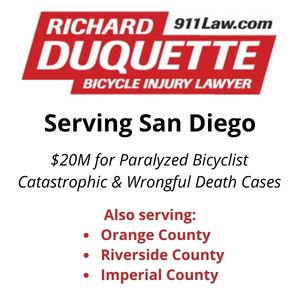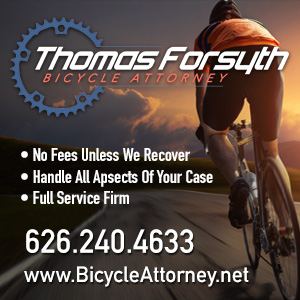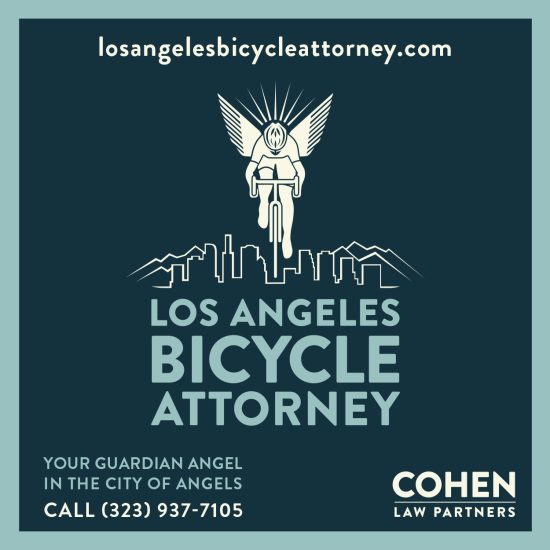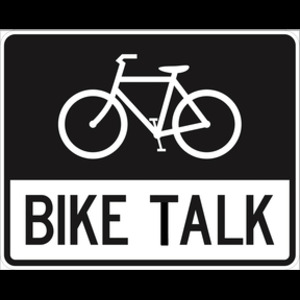 According to Tim Blumenthal, bikes have the power to change the world.
According to Tim Blumenthal, bikes have the power to change the world.
As the president of the Bikes Belong Foundation, Blumenthal is one of the founders of People for Bikes, a new organization dedicated to making that change happen and finding a place on the streets — and in the federal budget — for the country’s rapidly expanding community of cyclists.
Created and funded by the Bikes Belong Foundation, a non-profit offshoot of the respected industry trade group Bikes Belong, People for Bikes was founded with a goal of building a nationwide coalition of one million bicyclists, one rider at a time — giving cyclists the clout that drivers have long enjoyed through organizations such as AAA.
According to Blumenthal, there are somewhere around 50 million bicyclists in the U.S., yet less than 1% of those have ever actively stood up to demand their rights and the support of their government — a number Blumenthal places at around 250,000 people.
So pat yourself on the back if you’re one of them.
Even though People for Bikes is supported by the bike industry — financially and otherwise — Blumenthal insists it operates independently of the business group.
“I’ve never been put under any pressure by any of the manufacturers,” he said. Rather than looking for instant results or increased sales, all of the companies involved take the long view, believing that bikes are good for the country.
He added that the group’s parent organization, the Bikes Belong Foundation, is also made up of leading organizations dedicated to the public good such as the Centers for Disease Control, the Kaiser Family Foundation and the Robert Wood Johnson Foundation. Just four years old, the foundation has rapidly become a major donor for local biking projects, including a grant to the LACBC to help build a regional bike-friendly community plan through the REI/Bicycle Friendly Communities Grant Program earlier this year.
In addition, People for Bikes has partnered with advocacy groups such as the League of American Bicyclists, the Alliance for Biking and Walking and the Rails to Trails Conservancy. And they’ve recently joined with New Belgium Brewery’s Tour de Fat, scheduled to visit Downtown’s L.A. State Historic Park on October 23rd.
Aside from simply signing up cyclists, the immediate goal of People for Bikes is to ensure the maximum percentage of funding for bike and pedestrian projects in the federal transportation bill to be considered next year.
Blumenthal traced a rising line through recent federal budgets, from just $450 million for bikes and pedestrians in 2000, to $700 million in 2007 and $1.3 billion this year, with a goal of $2 billion in 2012.
“Bike facilities don’t cost much compared to other transportation projects,” he continued, adding that bicyclists deserve better, safer and more convenient places to ride, such as dedicated bikeways, bike boulevards and separated bike paths.
In order to significantly increase the number of cyclists nationwide, average riders need to feel safe enough to ride regularly, according to Blumenthal. While stronger riders may feel comfortable riding in traffic or in a bike lane, for others, “a white stripe isn’t enough to make them feel safe.”
What’s necessary, he said, is to change the current culture where drivers have been prioritized and cars are king. But changing that car-centric mindset won’t be easy, as various users compete for increasingly limited space on and off the roads.
The first step, Blumenthal said, is simply to sign the pledge.
It’s a free and easy way to get involved — a “no brainer,” as he called it — adding that the organization won’t ask for anything other than your name, email address and zip code. (Something I can vouch for, having signed up a few months back myself.)
“It doesn’t matter what kind of bike you ride or where you ride,” Blumenthal continued. “People for Bikes is designed to unify all Americans who ride bikes.”
He explained that this is your opportunity to be part of a movement to increase the clout and credibility of bicyclists with key decision makers, and become a potent force in future legislation to make this a safer and more ridable country for cyclists of all types.
“More clout,” he said, “equals better bicycling.”
………
Bicycle Advisory Committee Chair Glenn Bailey reports that tonight’s scheduled meeting of the BAC has been postponed to accommodate the LAPD’s observance of the National Night Out. The meeting will take place on Monday, August 9 at 7 pm at the Hollywood Neighborhood City Hall Community Room, 6501 Fountain Avenue, Los Angeles, CA 90028.
According to Bailey, the meeting will feature the revised bike plan, as well as a report from the LAPD.
At Monday’s rescheduled meeting, the City Planning Department will be presenting the revised draft Bicycle Plan as well as the proposed Five-Year Implementation Strategy. Also, the LAPD will report its recent policy and training efforts relating to bicycling. The revised special meeting agenda will be emailed in the next day or so.
………
Curbed LA relays a story from the Daily Bruin reporting on bad roads in Westwood — one of the city’s busiest biking centers — that take down riders on a regular basis. The city advises calling 311 to report potholes, saying they can be fixed within 48 hours. Although in my experience, patch jobs usually aren’t enough and often make the road rougher than it was before.
………
Just five weeks after suffering a heart attack, local rider GT gets the best news he could possibly get. Robert Sam Sanchez begins his prison term for the drunken hit-and-run death of Rod Armas. Lance tells Antonio the goal is to stay on the bike, while Stephen Box calls on the Mayor to take advantage of the opportunity. Malibu wants a safer PCH; then again, so do cyclists. Cyclists demand change at the Beverly Hills Court House. Bike lawyer Bob Mionske advises you to keep your cool, even when the cop that pulls you over is wrong. Listen my children and you shall hear of cyclists calling “the bulldozers are near;” thanks to George Wolfburg for the heads up. Discovering bike parking in NYC. Illinois will now install and maintain roadside memorials to people killed by reckless drivers. The League of American Bicyclists says act now to stop the spread of roadside rumble strips. The National Journal asks if cyclists and pedestrians will squeeze out cars; LAB President Andy Clarke says transportation is not a zero sum game. A three-year old Cleveland boy is seriously injured by a hit-and-run cyclist who claimed his brakes weren’t working. After being seriously injured riding off-road, a Philadelphia cyclist tweets for help. Only one third of Toronto cyclists are comfortable riding major streets without bike lanes. Ticketing dangerous Delhi drivers through Facebook.
Finally, Boston Biker says electric bikes are nothing more than crappy mountain bikes made heavier and more expensive.





